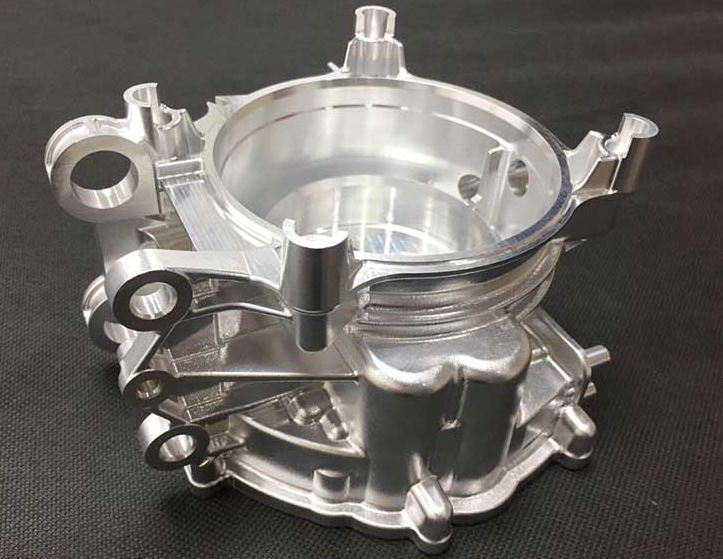The Stahl Specialty Company PDFs
The Stahl Specialty Company PDFs
Blog Article
Excitement About Stahl Specialty Company
Table of ContentsAll About Stahl Specialty CompanyThe Main Principles Of Stahl Specialty Company See This Report on Stahl Specialty CompanyThe Basic Principles Of Stahl Specialty Company The Only Guide to Stahl Specialty Company
The subtle difference hinges on the chemical material. Chemical Contrast of Cast Light weight aluminum Alloys Silicon promotes castability by minimizing the alloy's melting temperature level and improving fluidity throughout spreading. It plays a critical role in permitting intricate mold and mildews to be filled up precisely. Furthermore, silicon adds to the alloy's toughness and wear resistance, making it beneficial in applications where longevity is critical, such as automotive parts and engine components.It also improves the machinability of the alloy, making it less complicated to refine into completed products. In this method, iron adds to the overall workability of light weight aluminum alloys. Copper enhances electrical conductivity, making it beneficial in electrical applications. It likewise enhances deterioration resistance and contributes to the alloy's overall strength.
Manganese adds to the stamina of aluminum alloys and improves workability. It is frequently used in wrought light weight aluminum items like sheets, extrusions, and accounts. The existence of manganese help in the alloy's formability and resistance to breaking during manufacture procedures. Magnesium is a lightweight element that gives stamina and effect resistance to aluminum alloys.
Zinc boosts the castability of light weight aluminum alloys and assists control the solidification process throughout spreading. It improves the alloy's strength and hardness.
10 Simple Techniques For Stahl Specialty Company
Due to the fact that aluminum-silicon alloys have excellent spreading homes, high gas residential or commercial properties, basic procedures, and outstanding corrosion resistance, aluminum-silicon alloys are most typically made use of in the die-casting sector in the house and abroad. At the very same time, aluminum-silicon alloys are also relatively very early and widely recognized alloys developed and used in die-casting. After continual research study and improvement, the majority of the current international mainstream aluminum-silicon alloys have been settled and are absolutely nothing more than A356, A360, A380, ADC12, B390, and A413.
The primary thermal conductivity, tensile toughness, yield strength, and prolongation differ. Select suitable basic materials according to the efficiency of the target product created. Among the above alloys, A356 has the highest possible thermal conductivity, and A380 and ADC12 have the most affordable. The tensile restriction is the opposite. A360 has the most effective return strength and the greatest elongation price.

Fascination About Stahl Specialty Company
In accuracy spreading, 6063 is well-suited for applications where detailed geometries and premium surface coatings are paramount. Instances consist of telecommunication enclosures, where the alloy's remarkable formability permits for sleek and aesthetically pleasing designs while maintaining architectural stability. In the Illumination Solutions market, precision-cast 6063 elements produce stylish and effective lights fixtures that require elaborate shapes and good thermal performance.
(https://www.pubpub.org/user/frances-howard)
The A360 displays premium elongation, making it optimal for complicated and thin-walled elements. In accuracy casting applications, A360 is well-suited for industries such as Consumer Electronic Devices, Telecommunication, and Power Tools.

In accuracy spreading, aluminum 413 beams in the Consumer Electronics and Power Equipment sectors. This alloy's superior deterioration resistance makes it an excellent selection for outside applications, guaranteeing durable, durable items in the discussed sectors.
More About Stahl Specialty Company
The light weight aluminum alloy you pick will considerably affect both the spreading process and the residential properties of the final product. Since of this, you need to make your decision carefully and take an educated strategy.
Determining the most appropriate aluminum alloy for your application will certainly indicate considering a large variety of characteristics. These comparative alloy features adhere to the North American Pass Away Casting Organization's guidelines, and we've divided them right into 2 categories. aluminum foundry. The initial group addresses alloy attributes that influence the manufacturing procedure. The second covers attributes influencing the residential properties of the end product.
The alloy you pick for die spreading directly influences numerous elements of the spreading procedure, like how simple the alloy is to deal with and if it is vulnerable to casting defects. Warm breaking, also called solidification splitting, is a typical die casting problem for light weight aluminum alloys that can result in interior or surface-level rips or fractures.
The smart Trick of Stahl Specialty Company That Nobody is Discussing
Particular light weight aluminum alloys are more susceptible to warm cracking than others, and your choice must consider this. One more usual defect located in the die spreading of light weight aluminum is die soldering, which is when the cast sticks to the die wall surfaces and makes ejection challenging. It can damage both the actors and the die, so you ought to look for alloys with high anti-soldering buildings.
Rust resistance, which is currently a notable characteristic of light weight aluminum, can vary substantially from alloy to alloy and is a crucial characteristic to take into consideration depending upon the environmental problems your item will certainly be subjected to. Use resistance is another property generally looked for in light weight aluminum products and can distinguish some alloys.
Report this page